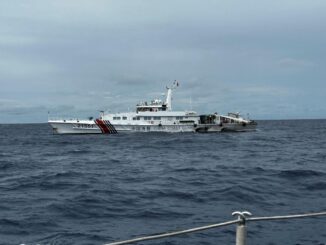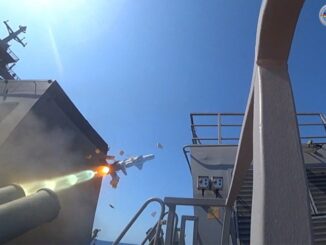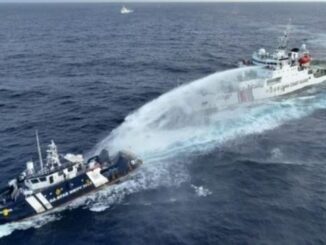
MANILA, Philippines — China has almost tripled the number of its military vessels in the West Philippine Sea (WPS), with nine People’s Liberation Army Navy (PLAN) ships spotted in the area from only three in the past few days, according to the Philippine Navy.
Three of the PLAN vessels were seen in the vicinity of Escoda (Sabina) Shoal, two in the area of Pagasa Island and one each around Ayungin Shoal, Likas Island, Patag Island and the Del Pilar (Iroquois) Reef.
The number of maritime militia vessels, meanwhile, went down from 106 during the period of July 30 to Aug. 5 to only 68 between Aug. 6 and 12.
The Philippine Navy also said the number of China Coast Guard (CCG) boats in the WPS went up to 13 during the same period.
Five of the China coast guard vessels were spotted near Ayungin Shoal, three in Panatag Shoal, three others in the Sabina Shoal and two in the vicinity of Pagasa Island.
Overall, the Philippine Navy said the total number of Chinese vessels in various parts of the WPS actually decreased from 122 to 92.
They now also include two research vessels sighted roaming the waters of Ayungin Shoal where the grounded BRP Sierra Madre remains, and in the vicinity of Patag Island.
Meanwhile, the Armed Forces of the Philippines (AFP) said it will not be cowed by heightened Chinese aggression in Philippine waters, like last Thursday’s incident when Chinese jets dropped flares in the path of a Philippine Air Force plane on patrol over Panatag Shoal.
“Those flares simply flared up the sense of patriotism in every member of the Armed Forces of the Philippines. We will not be deterred from continuing to perform our mandate of securing the integrity of the national territory,” Philippine Navy spokesman for the West Philippine Sea (WPS) Rear Admiral Roy Vincent Trinidad, said.
“The recent incident by the Peoples Liberation Army Air Force (PLAAF) will not deter our pilots from performing their mandate of conducting maritime air surveillance flights,” he stressed.
Diplomatic protest filed
Department of Foreign Affairs spokesperson Ma. Teresita Daza confirmed yesterday the filing of a diplomatic protest over the incident.
Without giving details, Daza said the “Philippines adopts a de-escalatory approach to tensions in the West Philippine Sea” and “remains committed to diplomacy and peaceful means of resolving disputes.”
Trinidad said the actions of the two Chinese jets were uncalled for, unprofessional and unsafe and in total disregard of international law.
“The broad picture is that whether on sea or in air these actions are all illegal, they are coercive, aggressive and deceptive. They have no place in the international arena which is governed by international law. Our pilots have the necessary training, they follow the rules of engagements for every contingency and they are confident in their capabilities,” he said.
“We are good with what we have,” but “given more we can perform even better. In addressing situations like this, it is not matching aircraft for aircraft or ship for ship. What is most important here is the will to fight, the will to perform our mandate in spite of all these challenges,” he said.
Trinidad admitted that the military has full confidence in the Department of National Defense’s pursuit of a program to modernize the AFP, specifically through the acquisition of more multi-role figher jets.
Asked if the military is considering the use of combat aircraft in WPS air patrols, he said “these are part of the challenges your airmen, your pilots face in the increasing complexity of the international arena.”
US assistance
Meanwhile, Brig. Gen. Aldrin Anani, Western Mindanao Command (Westmincom) deputy chief for external defense, said the US military was providing assistance through flight surveillance in detecting intrusion of foreign vessels, including Chinese naval ships.
He said the US Special Operations Task Force 511.2 conducted unmanned and manned air surveillance mission to assist the Philippine military in securing the country’s territorial waters.
“From the last report, they’re flying like 12 hours a day to perform their mission here, both for the manned and unmanned aircraft. They may have no vessels available here but their presence up in the air is very crucial in accomplishing action,” Anani said at a briefing Tuesday at the Westmincom headquarters in Zamboanga City.
He said the US-led air surveillance helped them detect recently the passing of Chinese navy ships, prompting the Naval Forces Western Mindanao patrol ships to conduct radio challenge, tail and escort them out.
“Actually, they were the ones who reported to us the movement of these naval ships coming from China. They were the first to monitor through their sophisticated equipment and they relayed it to us. And with that, it has been very crucial in monitoring the movement the ships,” Anani said. — Roel Pareno, Pia Lee Brago





Be the first to comment